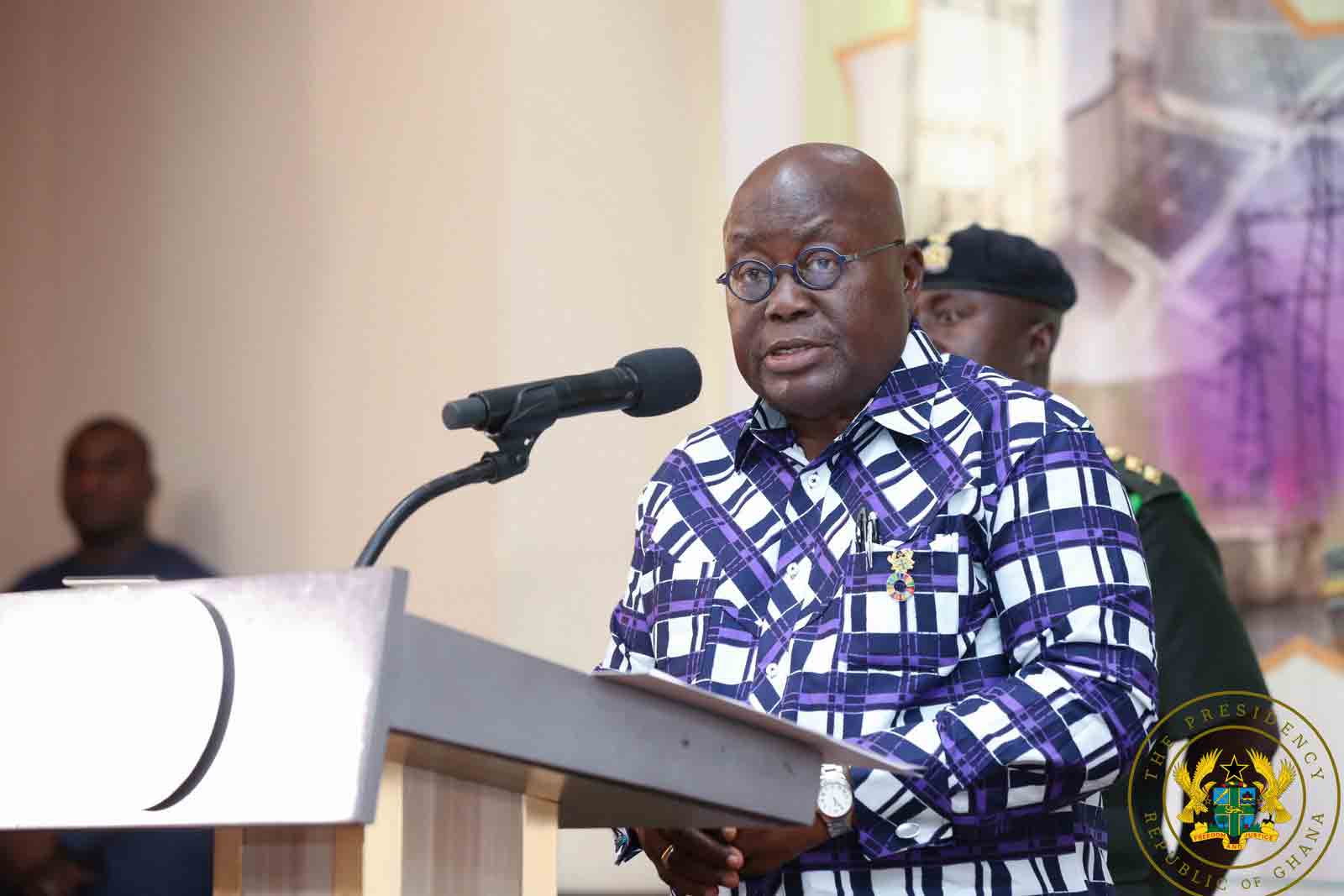President Nana Addo Dankwa Akufo-Addo, has stated that the production and delivery of stable, reliable and affordable power is critical to the success of efforts towards the integration and development of West Africa.
According to the President, the annual growth in demand for electricity is estimated at 10%, which means that for every 7 years, investment in electricity infrastructure has to be doubled in most West African countries.
“The availability and use of electricity will greatly influence how rapidly West African countries are able to increase their agricultural and industrial productivity, provide safe drinking water, achieve rapid economic development, and use information and communications technology to become increasingly integrated into the global marketplace,” he said.
President Akufo-Addo made this known at the opening of the 12th General Assembly of the West African Power Pool (WAPP), in Accra on Friday.
Click to listen to President Akufo-Addo here {mp3}akufo_addo_power_pool_meeting{/mp3}
The President noted that investment in the energy sector ensures the delivery of financial and social returns that have the potential to address important challenges, such as reduction of poverty and improvement of the lives of people.
![]()
In West Africa, fortunately, he added that through the ECOWAS Energy Protocol, efforts have been made to resolve the regulatory and political barriers constraining investment in electricity supply, and inadequate infrastructure along the electricity value chain.
It is for this reason that Heads of State and Government of ECOWAS, through the Supplementary Act A/SA4/01/08, decided that most of the regional power generation facilities should be developed by WAPP, through special purpose vehicles under the PPP framework.
The 450 MW WAPP Regional Thermal Generation Plants at Aboadze in Ghana, and Maria Gleta in Benin, are being developed within this framework, with the successes of these projects going a long way to boost investor confidence and attract more private sector capital into other WAPP Projects.
President Akufo-Addo noted that Ghana has been able, through the right regulatory, legal and commercial framework, to attract a lot of private sector players into the generation end of the business, and in the near future should be able to export its excess generation through the WAPP network to other countries.
“We are fully aware that, if we are to see West Africa prosper, a Region that is able to turn its natural endowments into resources that will offer her people access to better education, improved health care, safe water and electricity, we should call on our experts, technical and financial partners gathered here this week, to come up with concrete proposals that will make regional integration, through a Regional Electricity Market, a reality,” the President said.
He was confident that the 12th WAPP General Assembly will be able to seize the opportunity to reflect on the progress made towards the establishment of a Regional Electricity Market, and, in general, identify gaps and challenges, as we map a clear way forward.
With discussions at the WAPP General Assembly focusing on Regional Electricity Market, President Akufo-Addo urged the participants to recall that, whilst the challenges are immense, the Region must fundamentally realign its energy systems to achieve a unified system.
“WAPP has what it takes, in terms of capacity and capability, to create the Regional Electricity Market. This is the surest way to harness the abundant energy resources in the Region to accelerate the socio-economic development of the Region, and improve the living standards of our people. We must travel down this road. Alongside the risks, this is a moment of great opportunity for WAPP and West Africa,” he added.
President was convinced that the agreement amongst West African countries to integrate their electricity network for the region’s development and economic take-off will engender strong synergies and significant complementarities.
“The outcome of the integration should be an electricity system in which uninterrupted supply is the expectation, rather than the exception,” he added.
![]()
![]()

